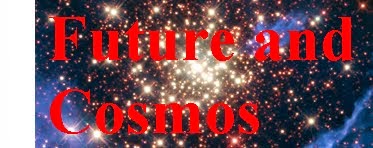Why is it appropriate to use that term to describe man's knowledge of nature? It's because what we know is very, very small compared to what we don't know. It's also because many of the theories that we have to explain things don't do a very good job of explaining what we need to explain.
Let's look at some fields of knowledge and consider how little we really know. First we may look at the field of astronomy. According to astronomers, the universe consists of billions of galaxies, each with millions or billions of stars. A reasonable estimate of the number of planets in the observable universe is something like 1,000,000,000,000,000,000, but we know something about no more than about a thousand of these, less than a thousandth of a trillionth of the total. So what we know is like chicken feed.
There is the great mystery of Fermi's paradox, why we have not yet been contacted by alien visitors. The answer is entirely unknown. Above and below our galaxy are mysterious Fermi bubbles, which "defy explanation" according to a leading physics web site. There is the recently discovered mystery of the universe’s “missing light,” which leaves our experts stumped.
Then there is the mystery of what caused the Big Bang, which is completely unknown to us. There are unexplained mysteries such as the non-random spins of spiral galaxies, and the strange alignment of quasar polarization vectors. There is the great and deep mystery of cosmic fine-tuning. There is the mystery of inexplicable planets. Even in our own cosmic backyard, we see mysteries we can't explain, such as an asteroid that is holding together even though it shouldn't be.
To try to explain the current structure of the universe, scientists have tried to patch together theories using gigantic unobserved fudges such as dark energy and dark matter. But thus far these attempts are not working very well, and can't explain well the behavior and positions of dwarf galaxies.
So in terms of cosmology and astronomy, our knowledge is fragmentary. But if we confine ourselves only to our own planet, then do we find that our scientists have things well-figured out? No.
Talking to some scientists, you might get the idea that we have a good grasp of such issues as the origin of life and the origin of the human mind. But we do not. These are mysteries that we do not currently have a good explanation for. The theory of Darwinian biological evolution (which ably explains quite a few things) falls far short in explaining how the basic requirements for life (such as DNA molecules, the genetic code, and RNA molecules) got started. There are also many subtle characteristics of the human mind which are hard to account for under the theory of natural selection (largely because they do not fit the “fitness for survival until reproduction” idea).
The limits of our biology knowledge have been highlighted by recent news stories such as the story that plants are apparently communicating with each other, and a scientific analysis concluding that parents are apparently transmitting characteristics to each other through some way that genetics cannot account for.
Looking to the field of neurology, we have no understanding of the most basic issue of how it is that inanimate matter produces thought. There are also numerous anomalies of the human mind that prevailing theories of the human mind fail to explain. There is abundant evidence for phenomena we have no explanation for, and our typical response is to go to any extreme to explain away such evidence, rather than admit the humbling idea that there are some parts of nature we can't explain at all.
A student in high school may stand in awe of human knowledge. He may look at a textbook in physics or biology and say to himself, “Wow, these scientists have it all figured out.” But if we think of books and knowledge, we should think of the totality of knowledge as a vast library hall filled with towering book shelves, a hall that stretches on for miles and miles. We have merely acquired a few books in that vast library.
We are babes in the cosmic woods
Imagine some children invited to a huge mansion. They are led to a little room in the mansion, where they find some jigsaw puzzle pieces on the floor. They work hard to assemble the pieces. When it seems like they are almost finished, they open the back door of the room, to find someone to whom they can triumphantly brag, “We have almost finished the puzzle!” But the door leads to a vast hall, which is empty except for 10,000 scattered jigsaw puzzle pieces on the floor. We are currently at the stage of these little children opening that door. Very pleased with our ourselves with the work we have done, we fail to see that we have not yet assembled a hundredth of the pieces of the cosmic jigsaw puzzle.


No comments:
Post a Comment